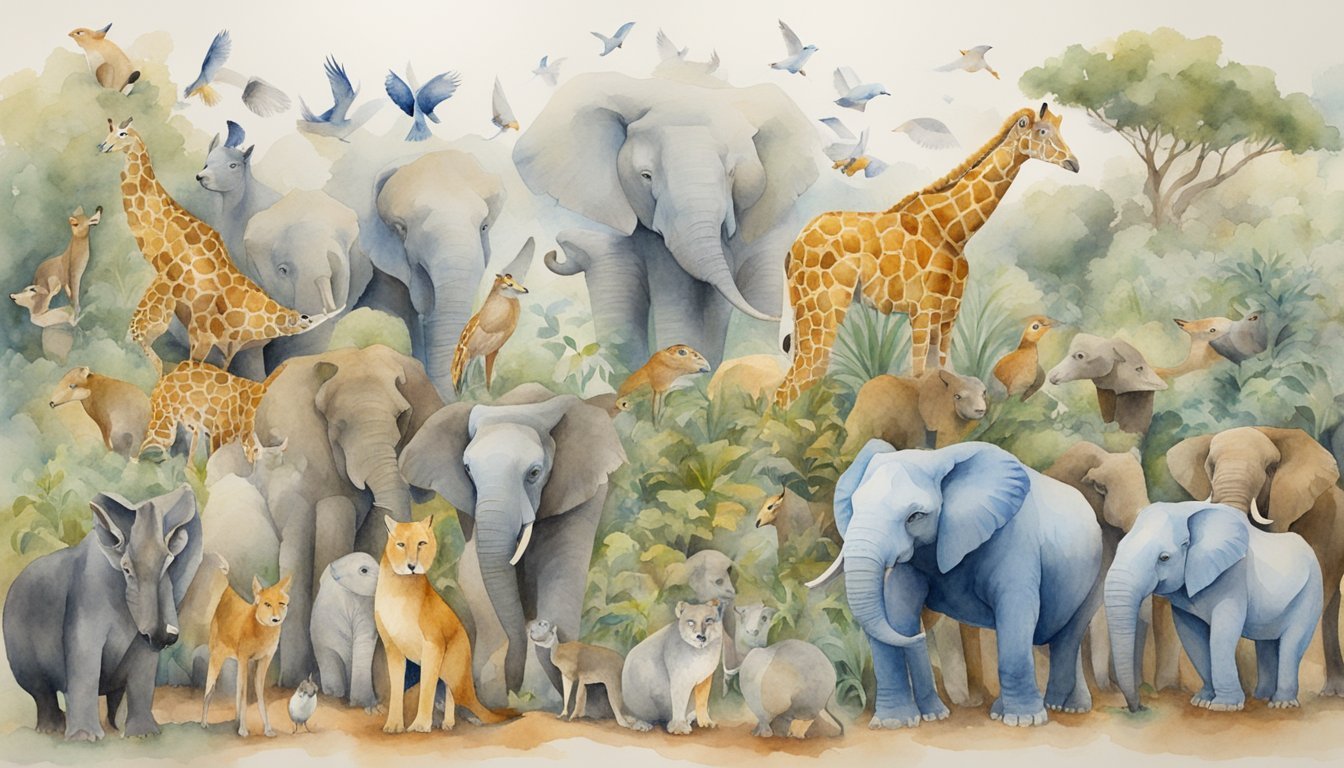Understanding Animal Intelligence
Defining Intelligence in Animals
Animal intelligence is a complex and intriguing subject, as it encompasses various aspects such as problem-solving, memory, learning, and emotions. Intelligence in animals is often compared to human intelligence, but it is important to recognize that different species have evolved to have different types of intelligence based on their environment and survival needs.
Brain Size and Encephalization Quotient
One common method for measuring intelligence is looking at brain size relative to body size, known as the encephalization quotient (EQ). However, this measurement isn’t always indicative of intelligence, as some small-brained animals exhibit remarkable cognitive abilities. Ravens and crows, for example, are known for their complex problem-solving skills despite having relatively small brains.
Mirror Test and Self-Awareness
The mirror test is a widely-used method for determining self-awareness in animals. This test involves placing a mark on an animal’s body and observing if it recognizes the mark in a mirror, indicating that it is aware of its own reflection. Dolphins, for instance, are among the few species that have passed the mirror test, showcasing their advanced cognitive abilities and self-awareness.
Problem-Solving and Tool Use
Many species exhibit impressive problem-solving skills and the ability to use tools, which are strong indicators of intelligence. Octopuses, for example, have been known to open containers and solve mazes, showcasing their remarkable cognitive abilities. Similarly, chimpanzees, who share 99% of our DNA, are well-known for their tool use and complex social structures.
By exploring these different aspects of animal intelligence, we can appreciate the cognitive abilities of various species and better understand the fascinating world of animal cognition.
The Intellectual Elite of the Animal Kingdom

Cetaceans: Dolphins and Whales
Cetaceans, including dolphins and whales, are known for their exceptional intelligence. Dolphins, for example, are capable of understanding complex language, problem-solving, and even self-recognition in mirrors. Their brains are large and highly complex, much like humans. Whales, too, have shown remarkable cognitive abilities, such as intricate communication and social structures, as well as the ability to pass down specialized hunting techniques through generations.
Primatology: Chimpanzees and Bonobos
Chimpanzees are often considered the smartest animals after humans, sharing 99 percent of our DNA. Their impressive cognitive abilities include tool use, problem-solving, and even some understanding of human language. Bonobos, another close relative, also display advanced communication, social behaviors, and empathy, which are essential for their tight-knit communities.
Avian Acumen: Corvids and Parrots
Corvids, such as crows and ravens, are remarkably intelligent birds. They have demonstrated abilities such as problem-solving, memory, and even self-awareness. Some crows have been observed using tools and solving puzzles that require planning and reasoning. The grey parrot, an intelligent feathered friend, can learn a large vocabulary and exhibit complex problem-solving skills. Some parrots can also understand concepts like numbers, colors, and shapes, making them a fascinating subject for researchers.
Beyond Mammals and Birds: Other Intelligent Creatures
Elephants are among the smartest animals, possessing excellent memory and self-awareness. They have the largest brain of any land animal and show signs of extreme empathy towards other elephants. In the realm of invertebrates, the octopus stands out for its alien-like intellect. These animals display incredible problem-solving skills and even have the ability to escape from enclosures and open jars. With such a diverse range of intelligent creatures, the animal kingdom continually challenges our understanding of cognitive abilities and what it means to be “smart.”

